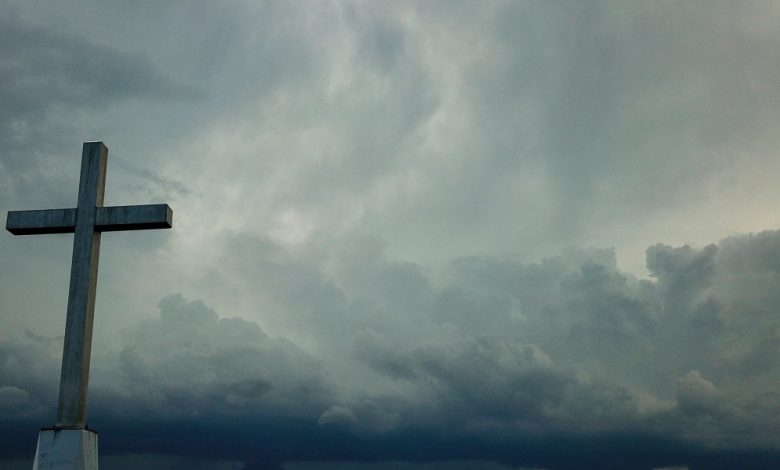Poll notes that highly religious Americans care far less about climate change

Most adults in the United States – including a large majority of Christians and people who identify with other religions – consider the earth sacred and believe that God has given humans a duty to care for it.
But highly religious Americans — those who pray daily, attend religious services regularly, and view religion as central to their lives — are far less likely than other US adults to voice concerns about global warming.
These are the key findings of a comprehensive report released Thursday by the Pew Research Center that surveyed 10,156 U.S. adults April 11-17. The margin of error for the entire sample of respondents is plus or minus 1.6 percentage points.
The poll says religious Americans are less concerned about climate change for several reasons.
“Politics comes first: The primary driver of U.S. public opinion about climate is the political party, not religion,” the report said.
“Highly religious Americans are more likely than others to identify with or lean towards the Republican Party, and Republicans are much less likely than Democrats to believe that human activities (like burning fossil fuels) are warming the earth, or climate change than a serious problem to consider.”
Responding to the findings, Rev. Richenda Fairhurst, climate officer for the nonprofit Circle Faith Future, said the siled culture in America is sowing divisions rather than inspiring teamwork.
“I don’t know who this is for,” she said. “But it doesn’t serve the community — and it certainly doesn’t serve the planet.”
The poll found that about three-quarters (74%) of religiously affiliated Americans say the earth is sacred. A larger proportion (80%) feel responsible – and fully or mostly agree with the idea that “God has given man the duty to protect and care for the earth, including plants and animals”.
Religious Americans with little or no concern for climate change also say, “There are much bigger problems in the world that God is in control of climate and that they don’t believe the climate is actually changing.”
Many religious Americans are also concerned about the possible consequences of environmental regulations, including loss of individual liberties, fewer jobs or increased energy prices, the report says.
The survey also found that two-thirds of religious adults in the US say the scriptures of their faith contain lessons about the environment, and about four in 10 say they have prayed for the environment in the past year.
The views, the report says, are common across a number of religious traditions.
Three-fourths of both evangelical Protestants and members of historically black Protestant churches say the Bible contains lessons about the environment. According to the poll, eight in 10 US Catholics and mainline Protestants say the earth is sacred, as do 77% of non-Christian religions.
But Christians and, more broadly, religiously-aligned Americans are divided in their views on climate change, the report says.
Those who view climate change as “an extremely or very serious problem” range from 68% of adults who identify with the historically black Protestant tradition to 34% of evangelical Protestants.
In none of the major Protestant traditions has a majority said that the earth is getting warmer primarily because of human activity; only 32% of evangelicals thought so.
The report states that non-religious Americans — the fastest growing group in polls that asked Americans about their religious identity — are much more likely to say climate change is an extreme or very serious issue (70%) than religious Connected Americans (52%).
Commonly known as the “Nones,” they describe themselves as atheists, agnostics, or “nothing special.” The report says they are far more likely than those who belong to a religion (47%) to say the earth is getting warmer primarily because of man-made activities (66%).
The poll provides clues as to why religious Americans are less concerned about climate change than non-religious Americans, despite seeing a connection between their beliefs and concerns about the environment:
• Climate change does not seem to be a big issue for US communities. The report states that of all US adults who attend church services at least once or twice a month, only 8% say they “hear a lot or quite a bit about climate change in sermons.”
• One in five say they heard a discussion of the topic from the pulpit.
• And only 6% of American church members say they talk a lot or quite a lot about climate change with other people in their church.
Highly religious Americans are also less likely to view inefficient energy practices as morally wrong, the report said. The same pattern emerges when asked about the consumption of foods that require a lot of energy to produce.
Rev. Fletcher Harper, an episcopal priest and executive director of GreenFaith, a global multifaith environmental organization based in New York, said he wasn’t surprised by the findings because he didn’t see culturally and politically conservative Americans prioritizing climate action.
“What this study doesn’t tell us, however, is the role that religion, when used effectively, can play in influencing concerned but inactive people to take public action on the climate,” Harper said. “This requires more research so we can all better understand the positive role religion can play in the fight against climate change.”
__
The Associated Press’s religion coverage is supported by AP’s collaboration with The Conversation US, funded by Lilly Endowment Inc. AP is solely responsible for this content.
Our new weekly Impact Report newsletter will examine how ESG news and trends are shaping the roles and responsibilities of today’s leaders – and how best to address these challenges. Subscribe here.



